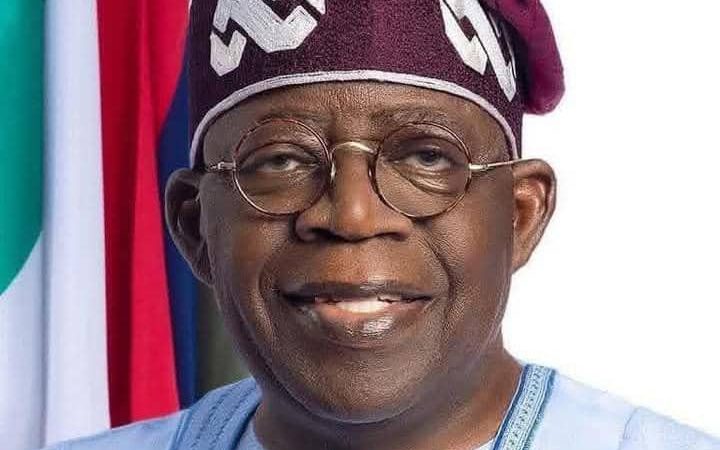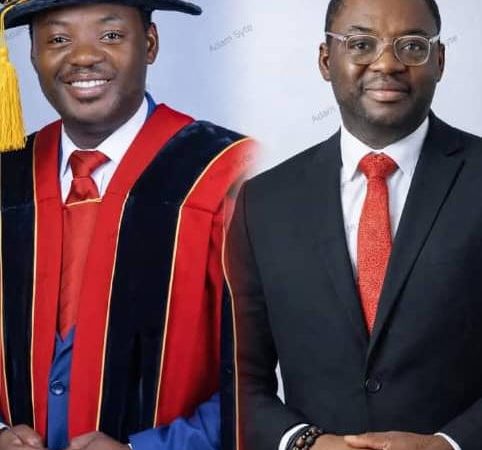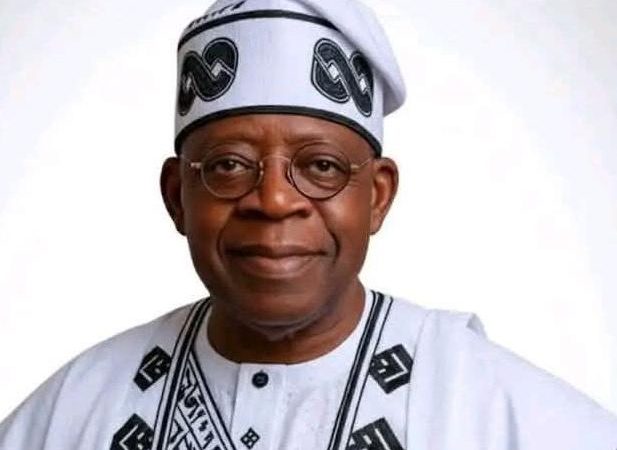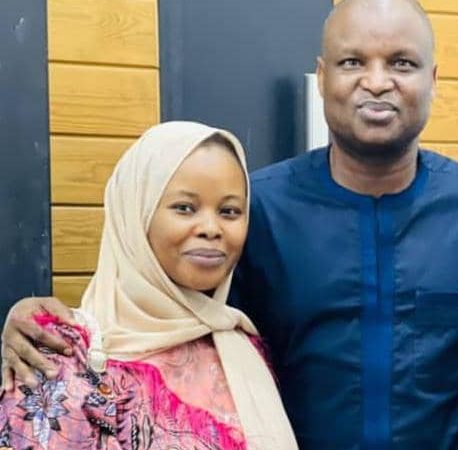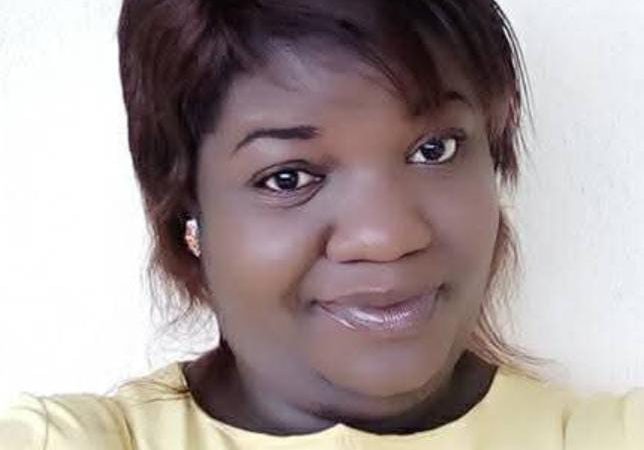Eniola Oluwagunna, who received first-class honours in Mass Communication with a cumulative grade point average of 4.91 and emerged as the best-graduating student of Crawford University, Ogun State, tells how her father, who also graduated with the same CGPA in November 1998, inspired her.
Your dad made a post on Facebook stating how proud he was about you graduating with first-class honours. How did that make you feel?
It was nice. I wasn’t expecting the post. It was so long and detailed, and it showed that he took his time to do it. I’m just happy that I am a source of pride to my parents, not just my dad alone, but to my mum as well. It was nice seeing their happiness, their joy, such that they even showed it to the world. Seeing it just made me very happy.
What did receiving first-class honours in Mass Communication and graduating as the overall best student with seven awards mean to you?
Honestly, I am happy, excited, and overwhelmed by the achievement. Amid the euphoria of it, I’m just grateful. Well, I didn’t see it coming and it was kind of a shock because I knew others who were doing well and we didn’t know who the best was. When my head of department called me to prepare the speech, I was surprised and at the same time not so much. If I didn’t get it, I would have been unhappy but at the same, I understand that it’s not just me.
At what point did you know that you would be the valedictorian?
It was two weeks until the convocation day. I was very happy because I was also the valedictorian in secondary school four years earlier. So, having another opportunity to deliver a speech like that was awesome. It will also be my joy to see my younger ones achieve such a feat.
Your dad also graduated with first-class honours from the University of Benin decades ago. Did that in any way influence you?
Oh! Yes. Well, I will say that excellence runs in the family. It’s just something that’s like a legacy with us. My dad having that (first-class honours) was a very good source of inspiration. Having that feeling that my father did it some years ago in a federal school left me with no other option; I just had to do it. My mum was also someone who did well. She wasn’t the best graduating student, but she was the best in her department; so, you can see that it runs in the family.
Did your mum also receive first-class honours?
I’m not sure about that but I just know that she came out as the best graduating student in her department.
To what extent did your parents influence your academic journey?
It started when I was young. I have two siblings, so it has always been a routine with my mum. My mum is in the educational sector. So, she knows how to nurture children to do well academically and excel. It has always been a push from them on me. They don’t put pressure, but they just want me to do well. So, knowing that they have got my back in whatever might happen was enough for me to do well and to make them proud. I didn’t want them to have any cause to regret sending me to school and regret the money they spent on me to get educated. So, it’s my joy for them to be very proud of me at the end of the day.
Were your parents keen on making you and your siblings academically sound?
My growing up was a good one. For some people when growing up, the pressure of education and the pressure to do well made them lack fond memories of childhood because it was just (reading) books alone, but my parents made sure that it was an all-around thing, that we had a balanced life. My siblings and I, as much as we tried to do well academically, also had a balance spiritually, physically, and all around. It wasn’t like we just sat down and it was all about books. I think that’s part of the reason why we all tried to do well. My sister is in medical school at the moment, but even in secondary school, she graduated as the best pupil. So, I will just say that it’s a legacy of excellence in the family.
My grandpa has also been very active in our lives right from the cradle. When we were younger, he always called us to his room or office to share the word (of God) with us and we grew up knowing that, and even as an old man that he is now, he constantly calls us and even sends some funds into our accounts. When we were younger, we took some English tests with him. He loved using words a lot and he always wanted us to have a lot of words in our archives. I remember when he gave us some small pocket dictionaries to learn new words and we didn’t know what he was doing, but looking back now, I think he tried, for a man who was not my biological father. I am grateful for that.
What was the cumulative grade point average of your dad when he had his first degree?
I wasn’t sure of his CGPA, but I think it was 4.9 or something. I didn’t target that exactly. I didn’t even know that his (graduation) was in November. In my mind, I would have loved to do more or perform better than him because it’s the joy of parents for a child to perform better. So, when he said it was the same and he showed me, I felt the coincidence was not just a normal one; it’s something divine. I would have loved to do better. I was aiming for a 5.0 CGPA because I wanted to do more than my dad. He even wanted that too but it wouldn’t have been good if it was lower, so, I’m glad about that.
Did your dad’s undergraduate result put you under pressure to get first-class honours?
The first-class honours my dad bagged didn’t put me under any pressure because, in my family, we’ve always known that we should do the best that we can and just leave the rest for God. So, it has not put us under any pressure of any kind because we know that, either way, being the best at what we do will make us and the family very happy. So, we just put in our efforts and have no regrets. I think that’s the basic mantra.
As the first child, did you face pressure, knowing that your parents had excellent undergraduate results?
Well, I feel like the pressure is even more on my siblings, to be honest, knowing that their elder sister had done this. I feel that they even have more pressure than me. I’m praying for them because it’s looking like they have to keep up with that or try to follow in the footsteps of those ahead of them.
It is not common for departments of Mass Communication in Nigerian universities to produce graduates with first-class honours and a CGPA of 4.91. How did you achieve it?
I wouldn’t want to belittle the efforts put into making that happen, but it was not too challenging for me and I feel like I could have done better. It’s just something I felt became possible with God. I put in the effort and God did the rest for me. We were just three that finished with first-class from the Department of Mass Communication of the university. So, being among the top three was nice, and it’s exciting for me that I’m one of those up there.
Are you the first to graduate with first-class honours in the department?
Well, for first-class, there have been others before me, but for the best-graduating student emerging from Mass Communication, I was the first from the department and I am happy about that landmark and legacy because I believe it’s something that will always be referred to – that I was the first to achieve such in the department.
Do you think you would have achieved that feat if you had attended a public university?
I think so. I got a diploma from a federal tertiary institution and thankfully graduated as the best in my set. So, even if I had all my education in a federal school, I’m very sure that it would have also been a success story.
As an undergraduate, were you engaged in activities other than academic work?
On the day of the convocation, a lot of the other students in the lower levels were very surprised and were not expecting it because I wasn’t the type that always went to the library. I hardly went to the library. I preferred reading in my room; so, it wasn’t like I was known for that. Spiritually, I was a worker in the chapel. I was also the academic director in the department in my third year and partly in my final year. So, those extracurricular activities didn’t stop me from achieving success.
How did you strike a balance socially and academically?
So, I think one of the things I will settle for is the fact that I am an organised person. So, I tend to organise myself when I have a lot of things to do and I break them down into smaller goals and I place them as priorities; doing that makes me achieve better. So, putting a timeframe for each activity does not allow the activity to exceed a set time and affect other important ones. So, I prioritise.
What was your biggest challenge while on campus?
Well, my biggest challenge was probably some days when I was down. I would just say that I had multiple challenges. One of the scenarios was a time that I got a ‘C’ grade in one of the courses I took and that was the only ‘C’ grade I had and I went to talk to my parents about it. It was really painful but everything worked together for good and that was one of my challenges at that time.
Multitasking was another one but thank God for my mum. Each time I had a lot in my head, I went to her and she helped out. When I became the academic director, I didn’t go for it, it was like an appointment. I had to just take it and during that period; I had a lot of things because I tried to engage in things that would build my career; so, having everything at the same time was challenging. At one point, my mum motivated me to write a book before graduation. I think she was one of my greatest supporters and she made me write that book and it was published in my third year before I eventually graduated. She was one of those who motivated me to succeed.
How impactful was your tenure as the academic director on campus?
I had one-on-one sessions with students. During exams, even when I had not read to the point I wanted to, some students still came to me for explanation and help, but I didn’t push them away because that was the reason I was there.
After graduation, many of them called me for projects and so on and I’m even working. So, I guess it just suggests that I have made an impact for them to still come to me even though there is a new academic director there (at the university). When they come to my DM (direct messaging) and ask me some questions, I’m always happy that I have made an impact.
What’s the next step for you after graduation?
Right now, I’m just registering for the National Youth Service Corps (programme). That’s my next move. After that, I will know what’s next. Of course, a master’s (degree) is part of the plan. I think every other thing will just fall into place. I don’t want to pressure myself because I believe God has a plan for me and a perfect timing for me. So, I just leave it to God to handle for me but for now, my studies first.
Do you have plans to practice journalism or what aspect of Mass Communication do you intend to explore?
Well, it depends on offers and all. Well, practising journalism, we both know how the system is and a lot of it is being done on social media now and that’s the new trend. At the end of the day, it boils down to the opportunities and offers and I am happy that it’s Mass Communication because it has many aspects that one can practise as the whole concept of communication is in it. So, at the end of the day, I think I will be fine wherever I am.
Was Mass Communication your dream course?
It wasn’t like a dream (course), but I knew that I wanted to study communication. When I was younger, I didn’t know what area but I knew I wanted to be in communication, and I would have also gone for International Relations or something similar.

